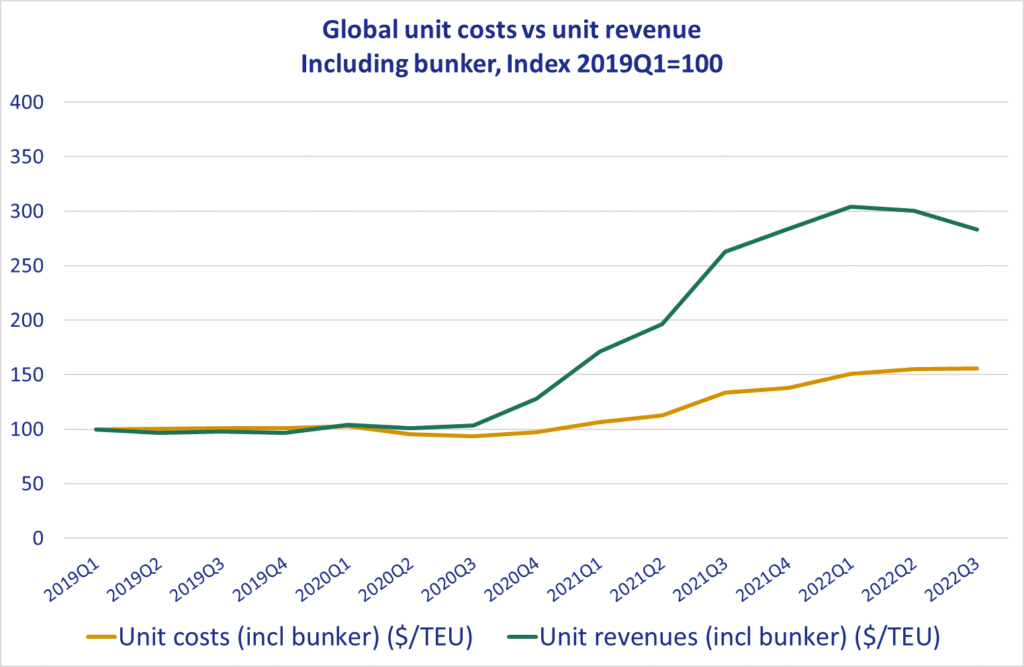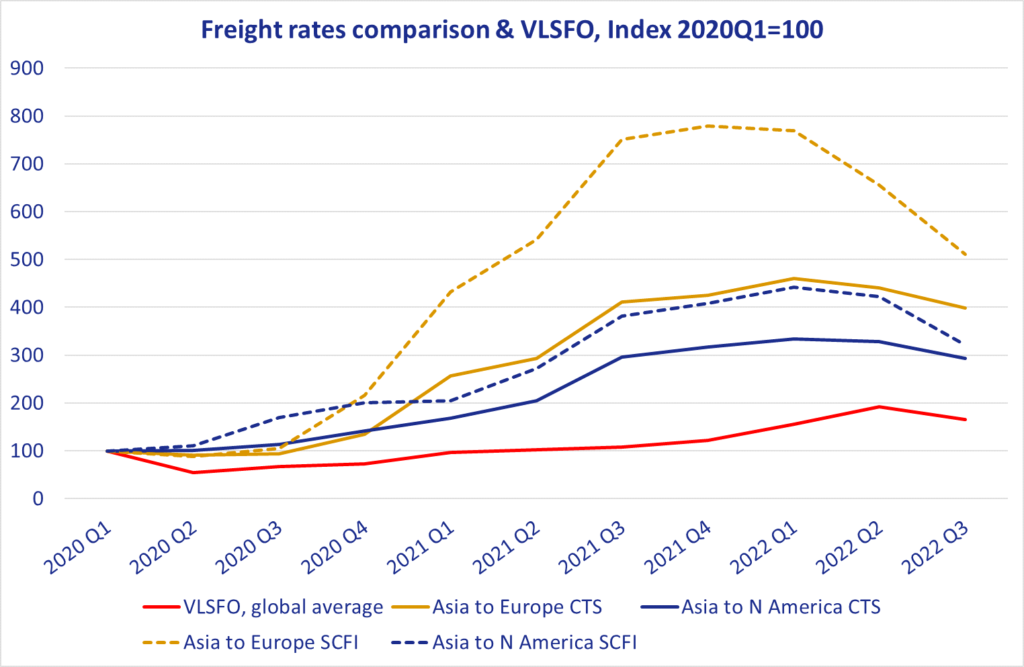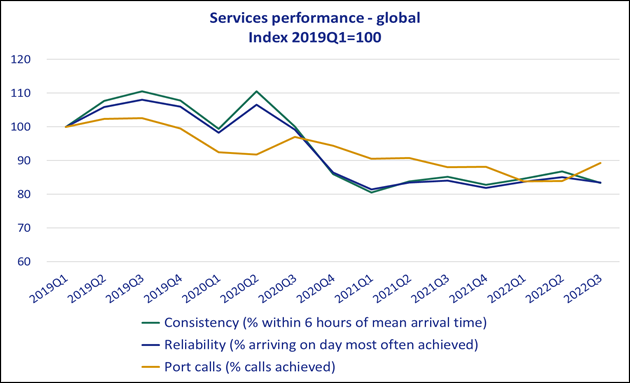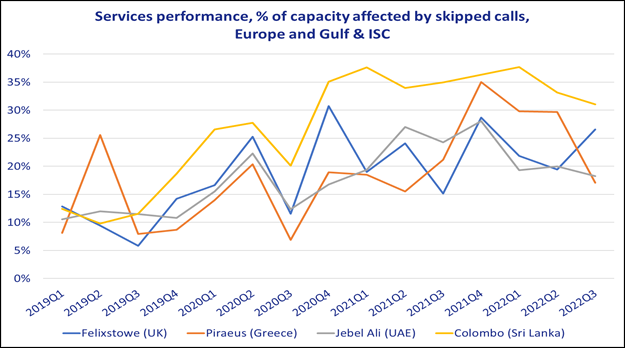First in a series of in-depth advisory publications aimed at minimising the risks of transporting lithium-ion batteries and cells launched amid heightened concern over container fires
London, 28th March 2023
The Lithium-ion Batteries in Containers Guidelines seek to prevent the increasing risks that the transport of lithium-ion batteries by sea creates, providing suggestions for identifying such risks and thereby helping to ensure a safer supply chain in the future. Together with its partners, the Cargo Incident Notification System Network (CINS) has compiled a comprehensive publication covering the properties of these batteries and their potential to explode, initiate fires and emit toxic gases.
Extensive measures to safely transport what is an exponentially increasing volume of lithium-ion batteries, in their various states or charge and when also contained in electronic devices are fully examined including, classification and regulation, container packing, landside storage, stowage onboard ships, incident detection and fire suppression, and loss prevention and risk mitigation.
“We strongly urge all stakeholders in the production, supply, transport, handling and sale of lithium-ion batteries whether as individual components or integrated into an electronic device, vehicle or other product to recognise their responsibilities in maximising safety when in transit,” comments Dirk Van de Velde, who is Deputy Chair of CINS and a board member of the association of cargo handlers, ICHCA. “Our Guidelines will create greater awareness of the possibilities of the damaging and life-threatening incidents, which have already occurred, and instil more urgent motivation to act before more catastrophic disasters result.”
Intended as the first of an on-going series of publications to be updated as circumstances require this first, Lithium-ion Batteries in Containers Guidelines (101.A) provides a general overview, and will be followed by three further documents – regulatory compliance check-lists, risk assessment and emergency response, and training and educational awareness. Stakeholders in the supply chain are encouraged to implement the advice according to their specific operations and requirements but to always keep safety of life as their primary consideration.
“As our experience of transporting lithium-ion batteries widens and the technology surrounding their chemical composition, production and application rapidly evolves, risk controls and loss prevention measures need to keep pace. The work encapsulated in these Guidelines will, of necessity, continue and be undertaken in collaboration with all relevant stakeholders to increase our knowledge and understanding of the risks posed by carriage of lithium – ion batteries in containers by sea. This publication follows on from a very successful one day Conference held on 15th March by the IG P&I Clubs, CINS, TT Club to bring all parties together to discuss such risks and to share knowledge and experience of carriage across the logistics supply chain” underlines Mark Smith, Loss Prevention Executive NorthStandard, International Group of P&I Clubs’ representative on the CINS LiB WG.
The document can be reviewed in full HERE
Peregrine Storrs-Fox, Risk Management Director at freight transport insurer TT Club concludes, “As the pressure on all forms of economic activity for decarbonisation increases, the use of these batteries will inevitably escalate at rates we have previously not experienced. Air transport has been heavily restricted already and it is clear that surface modes will be called upon to transport these goods. As an adaptable unit, the container will remain a focal point for safe transport, including for EVs alongside other vehicle carriers. The intermodal nature of containers means more actors other than shipping lines, be they manufacturers, packers, forwarders, logistics operators, warehouses and cargo handlers must all be cognisant of the safety issues we are addressing and play their part in ensuring the risks are properly managed.”
About CINS — Cargo Incident Notification System
CINS is a shipping line initiative, launched in September 2011, to improve safety in the supply chain, reduce the number of cargo incidents on-board ships and on land, and highlight the risks caused by certain cargoes and/or packing failures. Membership of CINS comprises over 80 percent of the world’s container slot capacity, together with the Members of the International Group of P&I Clubs.
CINS provides analysis of operational information on cargo and container incidents which lead to injury or loss of life, loss or serious damage of assets, environmental concerns. Data relating to any cargo incident on-board a ship is uploaded to the CINS database. The data includes information on cargo type, nature, packaging, weight; journey (load and discharge ports); type of incident and root cause. The Technical Advisory Committee is a CINS committee that includes Members of CINS and leading professional experts in relevant fields.
About ICHCA International
Established in 1952, ICHCA International is an independent, not-for-profit organisation dedicated to improving the safety, productivity and efficiency of cargo handling and movement worldwide. ICHCA’s privileged NGO status enables it to represent its members, and the cargo handling industry at large, in front of national and international agencies and regulatory bodies, while its Technical Panel provides best practice advice and develops publications on a wide range of practical cargo handling issues.
Operating through a series of national and regional chapters, including ICHCA Australia, ICHCA Japan and plus Correspondence and Working Groups, ICHCA provides a focal point for informing, educating, lobbying and networking to improve knowledge and best practice across the cargo handling chain.
About the International Group
The 12 P&I Clubs which comprise the International Group (the “Group”) between them provide marine liability cover (protection and indemnity) for approximately 90% of the world’s ocean-going tonnage.
Through the unique Group structure, the member Clubs, whilst individually competitive, share between them their large loss exposures, and also share their respective knowledge and expertise on matters relating to shipowners liabilities and the insurance and reinsurance of such liabilities.
Each Group Club is an independent, not-for-profit mutual insurance association, providing cover for its shipowner and charterer members against third party liabilities arising out of the use and operation of ships. Each Club is owned by its shipowner and charterer members, and its operations and activities are overseen by a board of directors, or committee, elected from the membership. The day-to-day operations of the Clubs are handled by professional managers, either “in-house” or external, who are appointed by and report to their Club board/committee.
The Clubs cover a wide range of liabilities, including loss of life and personal injury to crew, passengers and others on board, cargo loss and damage, pollution by oil and other hazardous substances, wreck removal, collision and damage to property. The Clubs also provide a wide range of services to their members including claims handling, advice on legal issues and loss prevention, and they regularly play a leading role in coordinating the response to, and management of, maritime casualties.
About TT Club
TT Club is the established market-leading independent provider of mutual insurance and related risk management services to the international transport and logistics industry. TT Club’s primary objective is to help make the industry safer and more secure. Founded in 1968, the Club has more than 1,100 Members, spanning container owners and operators, ports and terminals, and logistics companies, working across maritime, road, rail, and air. TT Club is renowned for its high-quality service, in-depth industry knowledge and enduring Member loyalty. It retains more than 93% of its Members with a third of its entire membership having chosen to insure with the Club for 20 years or more.














